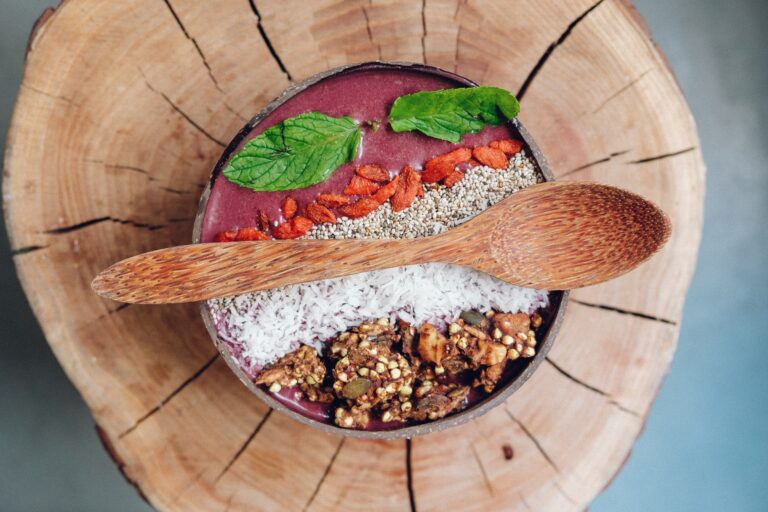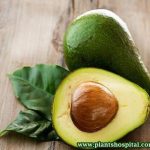Constipation is a widespread health issue. Constipation affects nearly 20% of the population in the United States, resulting in approximately 8 million doctor visits each year.Today we talk about the Natural Remedies for Constipation that are home based and work faster.
Constipation can be caused by the foods people eat or avoid, their lifestyle choices, the medications they take, or underlying medical conditions. Unfortunately, many people are oblivious of the origin of their chronic constipation. This condition of constipation is referred to as chronic idiopathic constipation.
Constipation manifests itself in the following ways:
- • Bowel movements fewer than three times per week
- • Discomfort or pain associated with stool passing
- • A feeling that not all poo has passed
- • Hard, dry, or lumpy stools
Table of Contents
Instant Natural Remedies for Constipation
Constipation can have a significant detrimental effect on one’s quality of life and physical and emotional health.
There are numerous natural remedies for constipation. These can be done in the privacy of one’s own home, and most of them are backed up by science.
The following are thirteen natural home cures for constipation.
1.Try and stay away from dairy.
Eating dairy can cause constipation in lactose-intolerant people due to its effect on the gut’s motility.
This category includes lactose intolerant children and adults who are lactose intolerant.
If someone feels they may have a dairy intolerance, they should consult their doctor for confirmation. In addition, the doctor may propose temporarily avoiding dairy while increasing other calcium-rich foods to determine if this alleviates symptoms.

In certain people, lactose or dairy intolerance might result in constipation. For example, eliminating dairy from their diets may help alleviate symptoms in some individuals.
2.Experiment with a low-FODMAP diet.
Constipation is a symptom of irritable bowel syndrome. The low FODMAP diet is an elimination diet that helps treat irritable bowel syndrome and may alleviate constipation associated with the condition.
Fermentable oligosaccharides, disaccharides, monosaccharides, and polyols are acronyms for FODMAPs.
The diet entails restricting foods rich in FODMAPs before gradually reintroducing them to identify which foods the body can tolerate.
A reduced FODMAP diet alone is often inadequate in people with constipation-predominant IBS.
These individuals will very certainly need to focus on other dietary factors, such as consuming enough water and fiber, to feel relief from their symptoms.
A low FODMAP diet may help alleviate constipation associated with IBS, but this may not be sufficient alleviation in and of itself.
3.Experiment with magnesium citrate
Magnesium citrate is a frequently used over-the-counter treatment for constipation. It is an osmotic laxative that individuals can purchase over-the-counter or online.
Taking magnesium supplements in moderation can help alleviate constipation. Doctors prescribe greater doses to prepare and clean the bowels before surgery or other medical operations.
Constipation can be relieved by using magnesium citrate, an over-the-counter vitamin.
4.Take shirataki noodles or supplement with glucomannan.
Glucomannan is a soluble fiber derived from the konjac plant’s roots. According to certain studies, it may be effective against constipation.
Besides promoting regular bowel movements, glucomannan may work as a prebiotic, enhancing the balance of beneficial bacteria in the gut.
In one trial, 45 percent of youngsters using glucomannan found relief from severe constipation, compared to only 13 percent in the control group.
Another controlled investigation, on the other hand, discovered no such effect.
Glucomannan can be obtained through supplements or the consumption of shirataki, or konjac, noodles.
Supplements containing glucomannan are also available. They vary in terms of benefits from brand to brand, so it’s a good idea to compare brands before purchasing. In addition, online retailers sell glucomannan supplements.
Glucomannan may be beneficial in treating constipation in some individuals. Supplements and shirataki noodles are among the sources.
5.Eat probiotic foods or probiotic supplements
Probiotics may be beneficial for chronic constipation prevention. Probiotics are helpful bacteria that naturally colonize the intestines. Bifidobacteria and Lactobacillus are two examples.
Consumption of probiotic foods can help increase these levels.
Some individuals who suffer from persistent constipation have an imbalanced bacterial population in their gut. Consuming more probiotic foods may contribute to reestablishing this balance and preventing constipation.
According to a 2019 review, consuming probiotics for two weeks can aid constipation treatment by boosting stool frequency and consistency.
Then again, they may help in constipation treatment by forming short-chain fatty acids. These may help to improve intestinal movements, making stools easier to pass.
Alternatively, you may wish to take a probiotic supplement. According to several studies, people tended to experience the benefits of these supplements after four weeks.
Probiotic supplements are available online, and you can also increase your intake of probiotic-rich foods to see if this helps with constipation. Among the prebiotic foods are:
- sauerkraut
- kimchi
- yogurt
Probiotics may be beneficial for chronic constipation treatment, for example, assume probiotic foods or take a probiotic supplement.
6.Laxatives, either over-the-counter or prescribed
Consult a physician or pharmacist for assistance in deciding an appropriate laxative. While each type has a somewhat different mechanism of action, they are all effective for constipation.
A doctor may advise one of the following:
- Osmotic laxatives: These assist in softening stool by drawing water from surrounding tissues into the digestive system.
- Stool softeners: These products contain oils that help soften stools and facilitate their passage through the digestive tract.
- Stimulant laxatives: These medications stimulate the nerves in the intestines, increasing bowel motions.
- Bulking agents: These are fiber-based laxatives that increase the stool retain water.
However, people should not regularly take most of these laxatives without consulting a doctor.
Constipation is effectively treated with laxatives; speak to a doctor or pharmacist for the greatest ones to utilize.
7.Take prebiotic foods
Prebiotics are a type of carbohydrate fiber that is not digested. Oligosaccharides and inulin are both prebiotics.
While dietary fibers help with constipation by improving the consistency and bulk of stool, prebiotics help with gut health.
Prebiotic fibers promote digestive health by feeding beneficial bacteria in the gut, increasing probiotics, and balancing the gut bacteria.
Indeed, specific prebiotics may help increase bowel movement frequency and soften stools.
Among the prebiotic foods are:
- Jerusalem artichokes
- Chickpeas
- Bananas
- Chicory
- Onions
- Garlic
- Leeks
Prebiotic fiber-rich foods can help maintain digestive health and a healthy balance of beneficial gut bacteria. However, prebiotics may help relieve constipation..
8.Intensify your physical activity
Numerous research studies indicate that exercise may help alleviate constipation symptoms.
Sedentary lifestyles have been associated with an increased risk of constipation in studies. As a result, some healthcare professionals prescribe increasing exercise to help move the stool.
Not all studies agree on the efficacy of exercise in treating constipation; as a result, additional investigation is necessary.
Other studies found that while exercise did not always improve people’s number of bathroom visits, it did reduce some symptoms and improve people’s quality of life scores.
Moderate exercise (brisk walking) has improved digestive symptoms and quality of life in people with irritable bowel syndrome. However, vigorous exercise (jogging) may cause symptoms in certain people.
To check whether it helps, try light exercises such as regular walks, swimming, cycling, or jogging.
Constipation symptoms may be alleviated in some individuals with exercise.
9.Consume prunes.
People usually praise prunes and prune juice as nature’s constipation treatment – and with reason. But, of course, prunes may be the most readily available natural remedy.
Prunes contain sorbitol in addition to fiber, a laxative sugar alcohol.
According to certain studies, prunes may be more effective than fibers such as psyllium.
The recommended dosage is around 50 g, or seven medium prunes, twice daily.
Individuals with irritable bowel syndrome (IBS) may avoid prunes, as sugar alcohols are rich in FODMAPs.
Discover more about prune juice for constipation and other constipation juices here.
Prunes contain sorbitol, a sugar alcohol with laxative properties, and highly effective constipation treatment.
10.Take coffee, preferably caffeinated coffee.
Consuming coffee may increase a person’s desire to use the restroom because coffee activates the digestive system’s muscular muscles.
Indeed, a 1998 study discovered that caffeinated coffee has the same effect on the gut as a meal does. This effect was 60% greater than drinking water and 23% more than decaffeinated coffee.
Additionally, coffee may include trace levels of soluble fibers that aid in constipation prevention by improving the balance of gut bacteria.
Caffeine’s colon stimulating properties may be enhanced in people with irritable bowel syndrome. Additionally, it may cause stomach symptoms.
Individuals who suffer from IBS may choose to experiment with eliminating caffeine from their diets to determine whether this helps.
Coffee can aid in constipation relief by activating the intestinal muscles. Additionally, it could include trace levels of soluble fiber.
11.Double down on your fiber consumption, particularly soluble, non-fermentable fiber.
Doctors will usually advise people to increase their dietary fiber intake to cure constipation.
This is because increasing fiber consumption bulks and consistency of bowel movements, making them easier to pass. Further, it aids in their faster passage through the digestive system.
Indeed, 2016 findings revealed that 77% suffering from chronic constipation benefited from fiber supplementation.
However, some studies indicate that increasing fiber consumption may exacerbate the condition. Others report that dietary fiber increases stool frequency but may have little effect on other constipation symptoms such as stool consistency, pain, bloating, or gas.
This is because various types of dietary fiber have varying effects on the digestive system.
There are numerous dietary fibers; however, they are generally classified into insoluble and soluble fibers.
Insoluble fibers — found in wheat bran, vegetables, and whole grains — provide bulk to stools and may aid in their passage through the digestive system more quickly and easily.
Soluble fibers — found in oat bran, barley, nuts, seeds, beans, lentils, peas, and various fruits and vegetables — absorb water and produce a gel-like substance that softens and improves the consistency of stools.
Psyllium, a non-fermentable soluble fiber, is the best choice for alleviating constipation.
Psyllium was 3.4 times more effective at relieving constipation than insoluble wheat bran in a 2020 evaluation.
Psyllium fiber comes in a variety of brands.
Insoluble fiber has produced conflicting findings in studies assessing its efficacy as a constipation therapy.
This is mainly because insoluble fiber can cause functional bowel disorders, such as irritable bowel syndrome or chronic idiopathic constipation.
Certain fermentable soluble fibers may also be poor at treating constipation, as they are fermented in the gut and lose their potential to hold water.
Consumption of a mixture of soluble and insoluble fibers is recommended to avoid constipation. The recommended daily fiber intake for females is 25 grams (g) and for males is 38 g.
Consume more foods that are high in fiber. Adding soluble non-fermentable fiber to the diet, such as psyllium, may also be beneficial.
12.Increase your water intake.
Constant dehydration can cause constipation, and it is critical to drink enough water and maintain proper hydration to avoid this.
Constipation may be relieved by drinking carbonated (sparkling) water. This can help them in rehydrating and resuming normal function.
According to several studies, sparkling water relieves constipation more effectively than tap water. This covers individuals who suffer from indigestion dyspepsia and those who suffer from chronic idiopathic constipation.
Consuming carbonated beverages, such as sugary soda, is not a good idea since these beverages might have adverse health effects and cause constipation.
Some individuals with irritable bowel syndrome (IBS) report that carbonated people find their symptoms and may desire to avoid sparkling water and other carbonated beverages.
Constipation can occur due to dehydration, so drink plenty of water, even more, effective than plain water for relieving constipation, maybe sparkling water.
13.Use Senna, a natural laxative.
Senna is a well-known herbal laxative that is safe and effective for treating constipation. It is available without a prescription and online in oral and rectal forms.
Senna contains plant glycosides, which stimulate the nerves in the gut and aid in the acceleration of bowel motions (36).
Senna is considered safe for adults for short periods, but individuals should visit a physician if their symptoms persist beyond a few days.
Doctors typically do not recommend Senna for pregnant women, breastfeeding mothers, or people with health issues, such as inflammatory bowel disease.
The herbal laxative Senna is a well-known constipation treatment that activates the nerves in the gut, increasing the rate of bowel motions.
Read Also:
- Top 14 Health Benefits Of Safflower Oil (Skin Uses & Diet) In 2025
- 6 Nutrition And Health Benefits Of Poppy Seeds- Uses And Side Effects 2025
- 13 Proven Health Benefits of Blueberry Tea (2025)
- Quartz Healing Stone Health Benefits (Guide 2021)
- Top 8 Wonderful Health Benefits Of Mahlep Tree (Mahaleb Cherry)
Summary
In sum, constipation is uncomfortable and can have several underlying causes. For example, numerous home cures and natural approaches, on the other hand, maybe beneficial.
If constipation persists, a person should consult their doctor to find the cause and develop an effective treatment plan.
Numerous Natural Remedies for Constipation discussed in this article can provide great relief.








